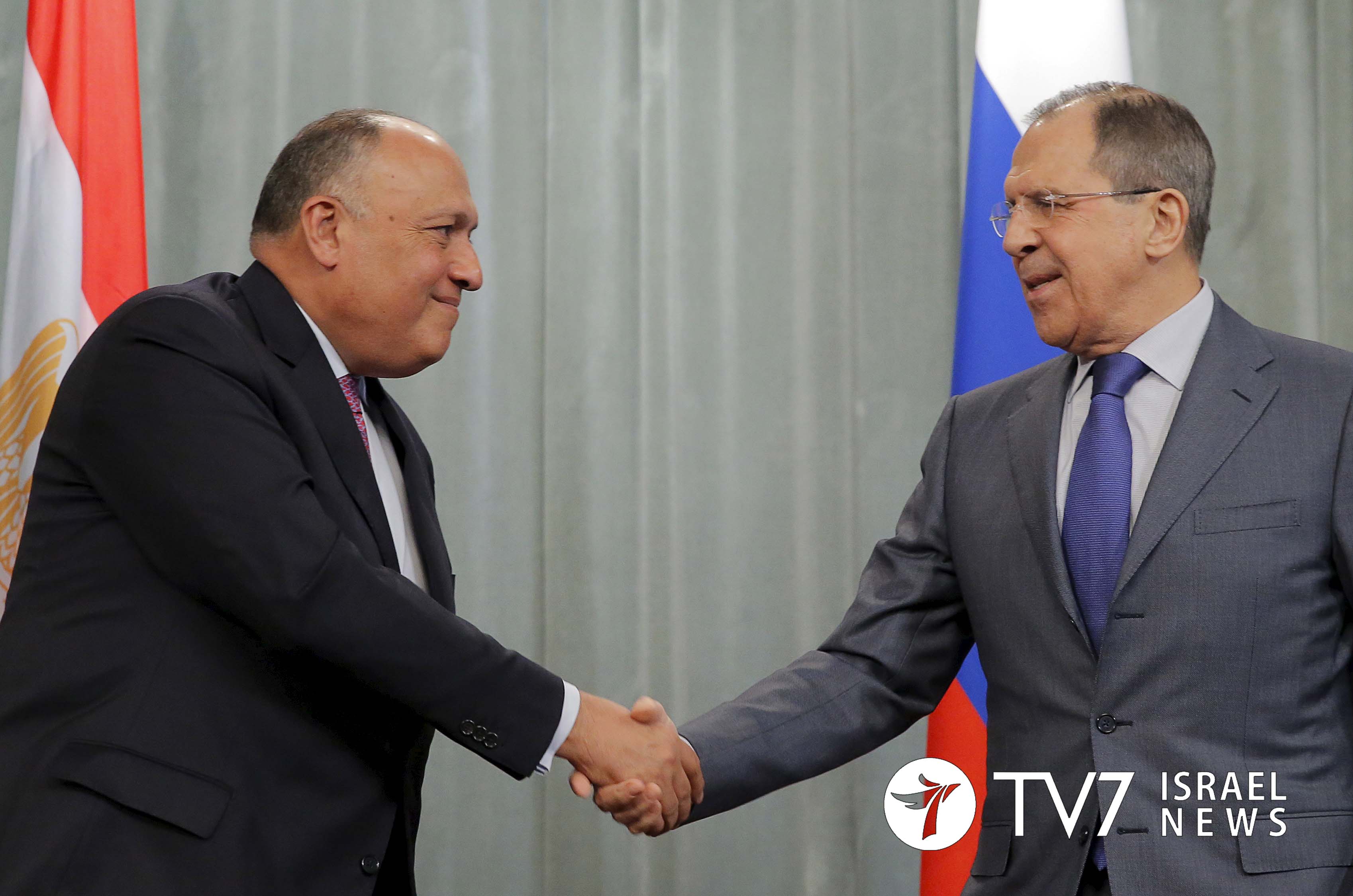Russian Foreign Minister Sergei Lavrov visited Israel’s southwestern neighbor, Egypt, during which Moscow reaffirmed its commitment to assist Cairo in combating Islamic terrorism plaguing the country. Egyptian Foreign Minister Sameh Shoukry, in a joint press conference with his Russian counterpart, declared that militant training camps in the country’s eastern neighbor Libya, where the Islamic State is freely operating, were a direct threat to Egypt’s national security, after Egypt conducted air strikes in Libya in response to an Islamic State terror attack that claimed the lives of 29 Christians in the southern province of Minya.
“Terrorist organizations using training and launching bases to the Egyptian territories is a direct threat to the Egyptian national security. The tragic events in Minya, last Friday is evidence to the ability of these organizations and their persistence to commit these horrific crimes to destabilize Egypt which necessitates Egypt to defend itself in line with rules of international laws and treaties. Egypt targeted the bases of these organizations to destroy it and limit its abilities from threatening the Egyptian national security,” said Shukri
The Egyptian top diplomat took the opportunity to urge Russia to further “utilize all of its available capabilities, to work together to get rid of terrorism.” / “We have complete trust that Russia’s ability through bilateral coordination and on an international level. Russia, as a superpower, has the effective ability to end this phenomenon, to retrieve stability in the Middle East. It can exempt Europe and other countries from terrorist operations that target innocent people,” said Shukri.
Following the meeting between the two top diplomats, Foreign Minister Lavrov held talks with Arab League Secretary-General Ahmed Aboul Gheit. According to Russian state news agency Sputnik, Aboul Gheit told Lavrov that the Arab League supported the establishment of de-escalation zones in Syria, but warned that it should not lead to the country’s “fragmentation”. Russia, Turkey and Iran agreed, in a memorandum signed on May 4th, to establish four separate zones in Syria where hostilities between Syrian government forces and armed opposition groups are halted for at least six months. The guarantors are expected to finalize maps of the de-escalation zones by June 4th.
